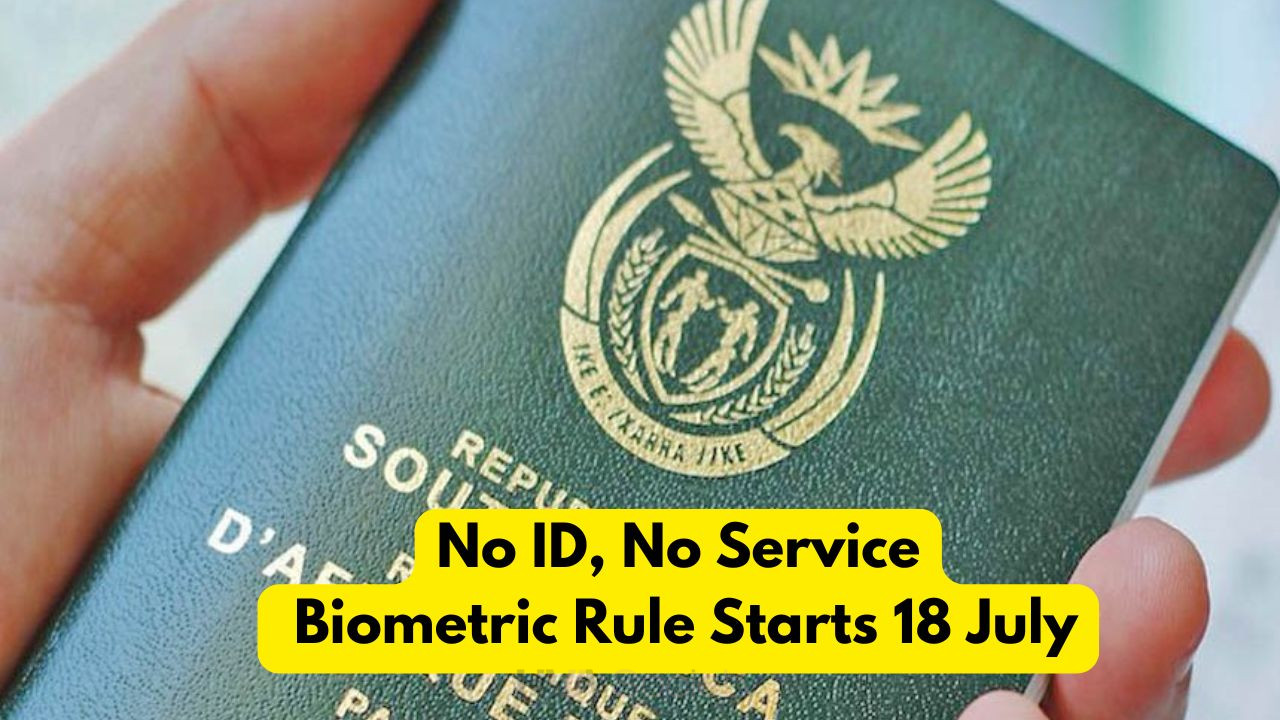Biometric ID Mandatory by 18 July: South Africans are on notice as the government implements a sweeping initiative requiring all citizens to possess a biometric ID by 18 July. This national crackdown aims to enhance security measures and streamline access to various government services. Without this crucial identification, access will be denied, impacting daily activities such as banking, healthcare, and travel. As the deadline looms, citizens are urged to ensure their compliance to avoid disruptions. The implementation of biometric IDs is part of a broader strategy to modernize identification systems and reduce identity fraud across the nation.
Understanding the Biometric ID Requirement in South Africa
The necessity for a biometric ID in South Africa stems from the need to establish a more secure and reliable identification system. This initiative involves capturing and storing unique physical characteristics such as fingerprints and facial recognition data. The South African government believes this will significantly reduce the risk of identity theft and improve service delivery across public and private sectors.
- Enhanced security: Biometric IDs are less susceptible to forgery.
- Streamlined services: Easier access to government services.
- Fraud reduction: Decreases identity theft and fraudulent activities.
- Global alignment: Matches international standards in identification.
- Efficiency: Reduces paperwork and manual processing.
How the Biometric ID Affects Daily Life
With the introduction of the biometric ID requirement, South Africans will experience changes in how they interact with various services. This new system is poised to impact several areas of everyday life, bringing both conveniences and challenges. For instance, accessing healthcare services will become more streamlined as patient identities can be verified quickly and accurately.
- Banking: Faster and more secure transactions.
- Travel: Simplified immigration processes.
- Healthcare: Quicker access to patient records.
- Employment: Easier verification of credentials and background checks.
- Education: Secure access to student records and exams.
Biometric ID and Government Services in South Africa
The implementation of biometric IDs is set to revolutionize government services in South Africa. By integrating biometric data, the government aims to enhance efficiency and transparency within its operations. This change is expected to facilitate smoother interactions between citizens and government departments, reducing the time and effort required to access services.
| Service | Current Process | Future with Biometric ID |
|---|---|---|
| Healthcare | Manual verification | Instant biometric verification |
| Banking | Card and PIN | Biometric authentication |
| Travel | Passport checks | Biometric scanning |
| Education | ID cards | Biometric access |
| Employment | Paperwork | Biometric ID checks |
Preparing for the Biometric ID Transition
As the deadline for obtaining a biometric ID approaches, South Africans are encouraged to prepare for the transition. Ensuring a smooth process involves understanding the requirements and steps needed to acquire the new identification. The Department of Home Affairs has outlined clear procedures to facilitate this changeover.
Steps to Obtain a Biometric ID:
- Visit a designated registration center.
- Provide necessary documentation (proof of identity, residence).
- Undergo biometric data collection (fingerprints, facial scan).
- Receive a confirmation receipt.
- Collect the biometric ID upon notification.
Frequently Asked Questions about Biometric IDs in South Africa
Here are some common questions and answers to help you understand the biometric ID process:
| Question | Answer |
|---|---|
| Why is a biometric ID necessary? | To enhance security and reduce identity fraud. |
| What data is collected? | Fingerprints and facial recognition. |
| Where can I apply? | At designated registration centers. |
| Is it mandatory? | Yes, by 18 July. |
| What happens if I don’t have one? | Access to services will be denied. |
Key Considerations for South Africans
As the biometric ID becomes a mandatory requirement, there are several considerations for South Africans to keep in mind. Preparing for this transition involves understanding the implications and ensuring compliance to avoid service disruptions. Here are some key aspects to consider:
- Ensure all family members are registered.
- Check for any exemptions or special provisions.
- Stay informed about updates from the Department of Home Affairs.
- Be aware of potential costs involved in obtaining the ID.
The biometric ID rollout represents a significant shift in how South Africans will interact with government and private services. By staying informed and prepared, citizens can ensure a seamless transition to this modern identification system.
 Act Fast: SASSA to Suspend 82,000 Grants by 29 July Without Your Documents - Just 3 Days Left!
Act Fast: SASSA to Suspend 82,000 Grants by 29 July Without Your Documents - Just 3 Days Left!
FAQs: Understanding the Biometric ID Implementation
What is the biometric ID deadline? July 18th is the deadline for all South Africans.
How does it affect travel? It simplifies and speeds up immigration checks.
Can I use my old ID? No, the biometric ID will replace old systems.
Is there a cost to register? There may be fees involved, check with local centers.
What if I miss the deadline? Access to essential services might be denied.
Where can I find more information? Visit the Department of Home Affairs website for details.
Will children need a biometric ID? Yes, all citizens are required to have one.







